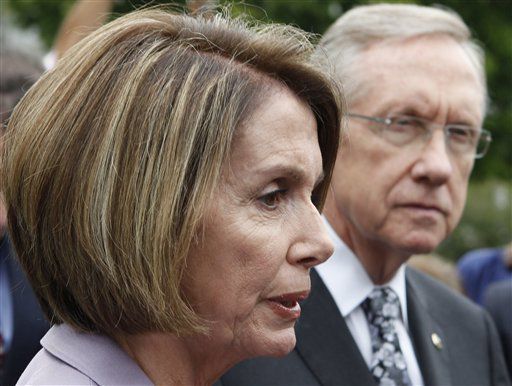SLOAN | Free trade becomes bipartisan

Political expediency generates philosophical inconsistencies, and I suppose we must just simply accept that, however aggravating. Then again, when the phenomenon works to bring erstwhile adversaries around to your corner, it makes the dissonance rather easier to handle.
Take, for instance, the entire issue of Russia. For roughly a century conservatives and Republicans had been sounding the tocsin regarding Russia as an ideological and ultimately existential enemy, while liberal Democrats (with notable exceptions) tended to, at best, derisively dismiss such concerns as jingoistic nonsense and, at worst, actively defend the likes of Alger Hiss. All it took was for Donald Trump to take the bait of Democratic fantasies that he was astute enough to collude with the Russians to make them finally consider Russia as something more than the innocent victim of the Reagan-Thatcher era.
The corollary, of course, was that an absurd number of Republicans all of a sudden seemed to adopt the opposite view, that Russia suddenly may not be so bad. Fortunately, most have come back to their senses, and happily it seems that most, if not all, of the Democrats who came into the fold on that particular issue have stayed here.
It’s a nearly identical circumstance concerning free trade. For decades, at least, the concept of free trade was a central tenet of conservative economic thought in America. Republicans embraced the free-market system and took their economic signals from its impartial judgments. Concurrently, they adopted David Ricardo’s teachings on comparative advantage and embraced the benefits of free trade. Protectionist fallacies were left to the Democrats, the unions, and a few fringy George Wallace types. Then Trump came along and made protectionism great again among the right.
Okay, maybe it wasn’t full-blown George Wallace/Bernie Sanders protectionism, but Trump’s brand of economic populism certainly polluted the waters. Consider for instance, his imposition of tariffs on aluminum and steel under Section 232 of the Trade Expansion Act of 1962, which authorizes the executive branch to investigate the effect of imports which may impact the national security of the United States and take subsequent action. Like most well-intentioned, and probably once necessary, federal laws, this one has far exceeded its intentions and scope. Intended to be applied to things like, say, oil or weapons-grade uranium, it is now just another tool to satisfy the political temptation to ostensibly protect native industries. Except in the case of aluminum, there isn’t much of a native industry: only about 20% of the aluminum used by American industry comes from America. We’re pretty good at making things with it, but just don’t have much of it. Other countries do. See Ricardo.
Those tariffs, then, have done nothing but raise material costs on manufacturers. After the tariffs were imposed, the cost of aluminum went up from $1,600 per ton to $2,800 per ton. It’s easy to understand why — demand has stayed constant, but the tariffs have decreased access to supply. In monetary terms, we call that inflation.
It may only be because they were initiated by Donald Trump, but Democrats are beginning to see the folly of protectionist policies. Earlier this month, two Democratic Congress-folk, Jake Auchincloss and Stephanie Murphy, penned an op-ed in The Wall Street Journal decrying these tariffs and extolling the virtues of free trade. More substantively, there is a bipartisan bill sponsored by Sens. Pat Toomey (R-Pennsylvania) and Mark Warner (D-Virginia), the “Bicameral Congressional Trade Authority Act,” which would not only remove the section 232 tariffs, but reform the system by requiring that any such future tariffs be approved by Congress. This is as attractive for reasons of constitutional hygiene as it is for economic ones.
William F. Buckley, who remains the most articulate American conservative of the last 70 years, wrote in the early 1990s that “…protectionism cannot, in the long run, work, given that any net economic satisfaction has to reflect the value of the dollar in competition with other currencies. To hide depreciated production behind the veil of tariffs is to subsidize the attrition of the dollar; the results of this are inevitably mischievous, and can be tragic.”
He was, and is, right. Conservatives should welcome Democratic converts to the cause of free trade. Herewith, a proposition: let’s agree on a few key principles — Russia and China are threats to our national security, the executive branch should cede back at least a little of its power to Congress, and free trade is an economic benefit. Then we can go back to fighting about the rest. Deal?
Kelly Sloan is a political and public affairs consultant and a recovering journalist based in Denver.













